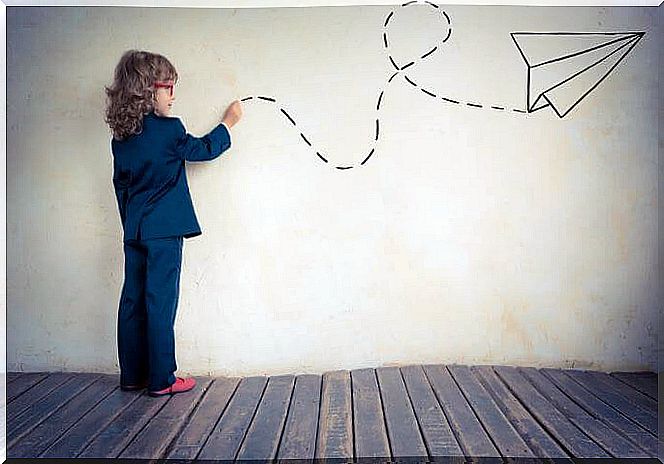How To Be A Good Negotiator

Negotiating is an art for which, in a way, we are specially prepared. The majority of children are already relentless negotiators. They know their weapons, know that they can count on the possibility of satisfying the desires of others (by doing well for example), and do not doubt at any time to offer this in exchange for what they want.
To be a good negotiator, it is necessary to have a series of skills and an adequate use of them. Confidence, positivity, flexibility or a good disposition are especially helpful among others. There are many others. The good news is that you can train!
Learning and experience to be a good negotiator
The main directive skills of a negotiator are specifically two: courage and integrity. Thanks to them, someone can defend with conviction the interests and values that he has or represents, at the same time that he demonstrates eloquence and wisdom. For this, if you are faced with a negotiation exercise, it is important to have in mind certain strategies that can help you, especially if you choose to employ them at the right time of negotiation.
As we said, we demonstrate our potential qualities from our childhood. For example, when we ask to be told a story or when we try to grab a few minutes before going to bed. Parents are our first rivals, because without realizing it, in these situations we are already negotiating.
Skills develop through experience, consistency, practice and learning.

How does our brain act during the process?
When we face a negotiation process, it is normal that when we first make contact, our prefrontal cortex activates and this activation is accompanied by a certain nervousness. Next, if we believe that we will not be able to cope with the situation, the amygdala causes us to feel fear.
The best way to overcome this panic is to anticipate the situation with advance planning and preparation. For example, knowing clearly what our goal is, how we should proceed, or by gathering as much information as possible. It is also important to know some tips, such as opening a negotiation when talking about quantities in order to use the “anchor effect”.
Then, brain activity is focused on our mirror neurons, thanks to which we are able to empathize with the person in front of us, thus creating a climate of understanding and trust. We are looking for any signal that allows us to understand how the person beside us feels, in order to adapt to their state of motivation and therefore to act accordingly. For this point, communication skills are essential.
The importance of what is said
At some point in the negotiation, we may reach or approach a point of no return. But before we throw in the towel, it’s important to use all the tools we have available, verbal and non-verbal. Dialectics are just as crucial as gestures are. For example, if we notice that our interlocutors frown when we make proposals, that they change their posture very often, that they do not maintain any eye contact or that they are too focused on their paper files; it would be much better to change the process.
Two key moments should attract special attention from you: salvation and departure. The most optimal handshake is that which is carried out vertically, without turning the palm of the hand neither towards the ground nor towards the ceiling. To close deals, you can use your left hand to lightly touch the other person’s arm and thus convey a certain closeness. In any case, when two parties are interested in a negotiation, if it breaks down, both lose.
For the brain, there is no equality
If after completing the process both parties come out beneficiary, the brain will not feel satisfied. In these cases, our mind is not satisfied with the famous “win-win” but only two options: win or lose. Success is not measured in terms of profit, but in the degree of satisfaction perceived in a conscious way.
There are other types of negotiations in which a collaboration agreement is sought. In this sense, the two negotiators know that if one of the two parties is dissatisfied, the agreement will soon be broken. So, if we are one of those parties and skilled negotiators, we will not only attempt to take care and protect our best interests but will attempt to ensure that the outcome achieved by the other party is interpreted as positive on their part. .
On the other hand, if we rate the outcome of the negotiation as positive, our reward circuit kicks in. By activating, our body releases neurotransmitters responsible for pleasure, such as dopamine and oxytocin. If we believe that the negotiation is unsuccessful, then the threat circuit activates. Its protagonist is adrenaline, which is why we feel angry, disappointed or dejected.

The role of emotions
Many experts say that to be a good negotiator, it is necessary to put emotions aside and opt for objectivity. This is the basis of game theory, which defends a cold and aseptic process, in which all participants are completely rational.
But it is not something easy to achieve if we take into account that we are people and that emotions are part of us. Feelings almost irreparably influence the outcome of a negotiation and it is important to know how to manage them so that they do not play against us.
The good management of emotional intelligence and the capacity for self-criticism are essential to be a good negotiator. Thanks to them, we will be able to accept a defeat, to analyze the reason for it, to learn from it and to face in a better way a negotiation to come.
Simple strategies to be a good negotiator
Let us summarize a series of skills which the good negotiator has and which convert his negotiating capacity into art:
- Listening actively : not only to hear, but to pay full and integral attention to the other.
- Positivity : make your point of view known and at the same time respect the rights and beliefs of others.
- Self- confidence: be courageous and have integrity. If you are uncertain, your stance will be defensive.
- Balance : give and expect something in return. It’s a negotiation, not a charity.
- Optimism : Your willingness to negotiate, listen to proposals and adopt changes will bring you good results.
- Empathy : Patience and delicacy will help you temper your mind if at any point you feel stuck.
Knowing how to use your brain and paying attention to advice from neuroscience is the key to being a good negotiator. There are managers of all kinds of personality, but the heart of success lies in knowing how to find the right dose of emotion and reason.










